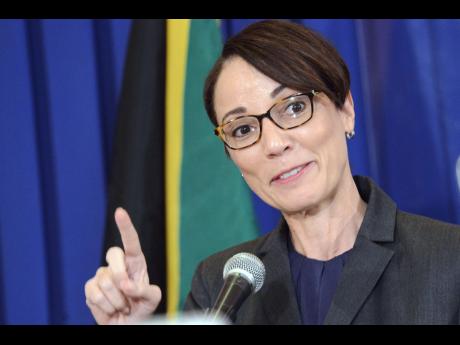Jamaica among states to sign climate-change agreement this week
Kamina Johnson Smith, minister of foreign affairs and foreign trade, will this Friday represent Jamaica during the official signing of the Paris climate-change agreement in New York, following last November's conference in France.
Some 200 countries had gathered in Paris for the COP 21 climate conference and, in December, adopted the new agreement, which aims to limit carbon emissions.
Clifford Mahlung, project administrator at the Climate Change Division in the Ministry of Economic Growth and Job Creation, told The Gleaner that the signing is a significant step towards strengthening the work that has started to mitigate the effects of climate change.
"We will be among the other heads of state who will be there. This is the first step towards becoming a party to the Paris agreement because this has to be followed up by ratification," he said.
"The process towards ratification will require government approval, and so that process is on the way. We should be complete before the year ends."
Mahlung said now that the agreement is open for signature by the parties to the convention, United Nations Secretary General Ban Ki-moon has been asked to convene a crucial ceremony, which will be attended by United States President Barack Obama, among others.
NEED FOR SENSITISATION
Making reference to a post-COP 21 discussion held last week at the Four Seasons Hotel in New Kingston, Mahlung said it was important that Jamaicans are sensitised to the importance of the agreement, especially as it relates to carbon emissions.
"With the significance of COP 21, we decided to have this discussion one week before the official signing. This new climate-change agreement builds on the convention and provides the basis which will accommodate further work, with respect to the climate-change process," Mahlung said.
The agreement itself consists of many areas, including the new long-term goal in keeping future temperatures well below 2˚C and pursuing efforts to keep those temperatures as close to 1.5˚C as possible.
"Even though we contribute less than one per cent to the global emissions, it is important that we do our part to control our energy output, which will signal to the emitters that we are serious about climate change, which will mean also that they have no excuse but to reduce their emissions as well," he said.


